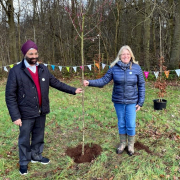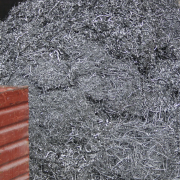International Environment Council: New Listings for Plastics Waste
New listings agreed at the United Nations’ recent Basel Convention meeting in Geneva will effectively re-categorise non-hazardous plastic waste that is not recyclable or is difficult to recycle as requiring special consideration. This is almost certain to lead to a reduction in transboundary movements of these materials, it was reported by BIR’s Trade & Environment Director Ross Bartley at the latest gathering of the International Environment Council (IEC).
The listings under Annex II of the Convention will apply from January 1 2021 and will have “major implications” for shipments involving non-OECD countries in particular, including the imposition of prior informed consent controls and of prohibitions. Non-OECD countries will welcome the fact that they can use the Basel Convention rules to return imported unwanted unrecyclable and difficult-to-recycle plastic wastes to the exporting country, he suggested.
BIR has already pledged to work with the Basel Convention’s new Partnership on Plastic Wastes which, Mr Bartley hoped, will “help us overcome the problems that the new listings may give”. Urging other industry parties with an interest in plastics recycling to join the Partnership, he insisted: “We have to be involved, and the more of us that are involved the better.”
His plea was echoed by Adina Renee Adler, Senior Director for International Relations at the US Institute of Scrap Recycling Industries (ISRI). The Basel Convention’s latest move on plastics could set “a precedent” for other end-of-use product streams, she warned, “and so there is a need for everybody to be involved”.
Also meeting recently in Geneva were parties to the United Nations’ Stockholm Convention whose aim is to eliminate or restrict the use of persistent organic pollutants (POPs). In this context, Mr Bartley flagged up the apparent contradiction of the Priority Waste Stream Directive calling for higher recycling targets for cars and electrical/electronic equipment at the same time that the Stockholm Convention is looking to drive down limits for chemicals.
“There has to be some way for manufacturers to eliminate these materials (POPs),” stated BIR’s Trade & Environment Director. “At the moment, recyclers are burdened by end-of-life materials with contamination from manufacturers’ designs.”
One of the latest chemicals identified for elimination is perfluorooctanic acid (PFOA) whose uses include as a surfactant in textiles. “This is a concern for us as it can come back to the recycling industry,” noted Mr Bartley.
Given the evident shift in regulation towards the creation of a “non-toxic society”, it has become even more important to innovate, added IEC Chairman Olivier François of Galloo.
According to guest speaker Dr Gloria Lei Yao, Director of Project Development at the Hong Kong Research Institute of Textiles and Apparel (HKRITA), low recycling rates for used textiles represent “a worldwide problem”. Compared to 26% in Europe, 15% in China and 12% in the USA, the rate in Hong Kong is a “really poor” 4%, she informed delegates.
The guest speaker went on to outline some of her organisation’s wide-ranging research, development and technology transfer initiatives in the mechanical, chemical and biological recycling of post-consumer textiles. These include investigations into the prevention of environmentally-hazardous microplastic release during the washing of clothing.
Source: BIR Bureau of International Recycling aisbl (28 May 2019)






